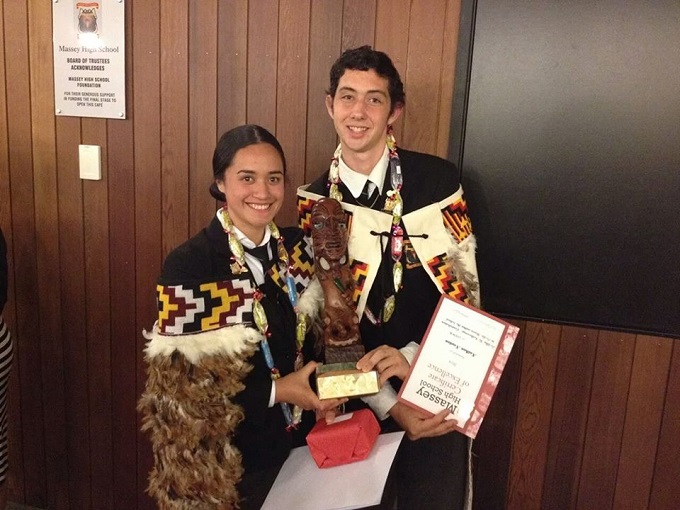
<h2>Marae-ā-kura have created ‘Māori space’ in English medium schools for over 30 years.</h2>
<h3>With over 99 marae-ā-kura across the country, and more being built, the term describes complexes established to create Māori teaching space.</h3>
<p><img class="aligncenter size-full wp-image-8972" src="https://www.schoolnews.co.nz/wp-content/uploads/2018/03/SN40-TR-Marae-marae.png" alt="" width="680" height="502" /></p>
<p>Generally, marae-ā-kura are pan-tribal, with teaching and learning as their central purpose. This editorial draws attention to marae-ā-kura as important kaupapa Māori institutions and further challenges educators to consider carefully the benefits and inherent responsibilities of establishing and maintaining marae-a-kura in their schools.</p>
<p>Although tribal marae (as well as university-based marae) have been well researched, the pedagogy of marae-a-kura are less well understood. Concerned at this paucity of research, and interested in my own student and teacher experience of a marae-ā-kura, I undertook a Master’s thesis in 2012 &#8211; Tiriwā: A school marae and Māori success &#8211; while working on a two-year project, Marae-ā-kura: Teaching, learning and living as Māori. Both projects complexify what have become, arguably, common yet often under-utilised spaces in schools.</p>
<h2>The emergence of marae-ā-kura</h2>
<p>Driven by Māori teachers, marae-ā-kura emerged in the 1970s as part of a wider Māori renaissance. Kākāriki Marae at Green Bay High School in West Auckland is acknowledged as the first marae-ā-kura.</p>
<p>Established in 1978, its founding aim was to revitalise te reo Māori and improve the educational outcomes of Māori students. Kākāriki offered Māori space in an English medium setting before Kura Kaupapa Māori was available.</p>
<p>Marae-ā-kura typically exist in urban settings to provide an ‘authentic context’ to experience te reo and tikanga Māori and, in recent times, carry the broader responsibility of addressing ‘Māori success’.</p>
<p>Marae-ā-kura provide <a class="wpil_keyword_link" href="https://www.schoolnews.co.nz/2015/10/developing-opportunities-at-school-with-a-view/" title="opportunities" data-wpil-keyword-link="linked" target="_blank">opportunities</a> for students and their whānau to access te ao Māori and develop a positive Māori identity – a key tenet of a ‘Maori succeeding as Maori’ discourse. Māori achievement is often viewed uncritically solely in academic terms, with cultural identity typically overlooked.</p>
<p>Instead, success ‘as Māori’ challenges mainstream education to consider that Māori students should enjoy education success as culturally intact beings able to access global, national and Māori worlds.</p>
<h2>Challenges &#8230;</h2>
<p>Some marae-ā-kura are purpose built while others utilise surplus classrooms which are improved over time as funds allow within often tight school budgets. If not viewed as important in a school’s strategic vision, maintaining the physical and cultural space of marae-ā-kura frequently falls on Māori staff, their non-Māori allies and Māori whānau. But if staff and whānau are transient, or if culturally capable Māori staff are not employed to fulfil the necessary roles on the marae or to uphold the tikanga of the marae, who is left to protect and maintain its mana?</p>
<p>Marae-a-kura provide access to te ao Māori for non-Māori students and staff. While marae-ā-kura can develop the consciousness of non-Māori in positive ways if, for example, English dominates during formal marae proceedings or it is used as a general teaching space by teachers unfamiliar with marae tikanga –what of the language, culture and purpose of these kaupapa Māori spaces?</p>
<h2>&#8230; and opportunities</h2>
<p>One of my research findings heard Yr 10-13 students describe learning at the marae as ‘different’ to learning in a classroom. They said that at the marae:</p>
<blockquote>
<p>“… it’s a different vibe, you feel more relaxed, more stable. In other classes you get distracted.”<br />
 “It’s set up different to a classroom. We can work on the floor … we go back there at interval and after school to finish our work.”</p>
<p>“… you have fun and learn at the same time. That helps me to remember things, to learn things.”</p>
<p>“… you definitely wouldn’t run around and throw paper and swear. That would just be wrong. Not saying that I would in the classroom … but lots of others do!”</p>
</blockquote>
<p>A further finding was that Māori whānau felt more encouraged to actively engage in their child’s education via the marae-ā-kura, a site they say where ‘being Māori’ for them and their child is best nurtured.</p>
<p>As establishing marae-ā-kura becomes an increasingly popular ‘solution’ to addressing ‘Māori achievement’, educators are encouraged to think critically about the pedagogy of marae-ā-kura and consider carefully the role, rewards and responsibilities that these important kaupapa Māori spaces offer by talking with Māori communities, educators and engaging with the small but growing research literature on marae-ā-kura.</p>
<p>(For further information on marae-ā-kura see: Tiriwā: A school marae and Māori success; Smith, L (2012) and Marae-ā-kura: Teaching, learning and living as Māori; Lee, Pihama, Smith (2012).)</p>
<p>Dr Hinekura Smith has worked in Māori education for over 20 years, initially as a secondary school te reo Māori teacher then later as a Māori medium professional development facilitator, intial teacher educator and lecturer in education at The University of Auckland.</p>

NZCER found generative AI tools are frequently used to support teaching and learning in primary…
The Ministry decision to discontinue a reading resource over kupu Māori has angered the sector…
NCEA was designed to broaden educational success, explains David Pomeroy from the University of Canterbury.
More than just a break from the classroom, a visit to a zoo or wildlife…
Without proper maintenance and care, trees can become a hazard. Are your trees in need…
Loneliness and social disconnection negatively impact wellbeing. A new WHO report finds teens feel the…
This website uses cookies.